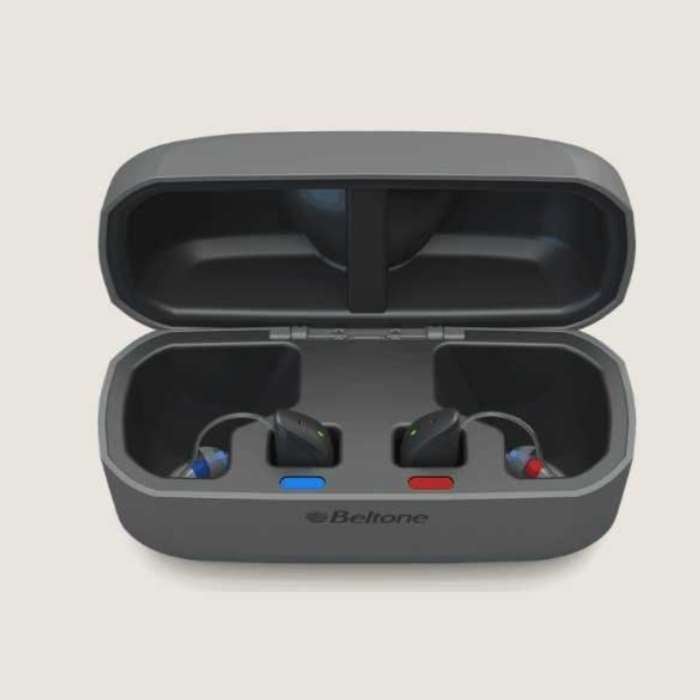here are 11 individual Beltone hearing clinics within driving distance of my home.
I live in a densely populated area, but even so, it's an impressive offering.
Beltone has 1,500 locations around the country which make them the largest hearing retailer in the U.S and one of the best-known names in hearing health.
If you are reading this article, you probably have questions. Is Beltone good? Do they make their own hearing aids? Will they offer me more than one brand? How do prices work?
In this guide, we'll get into all of it. We'll start with some background on the company, their latest hearing tech, and how the Beltone process works.
Let's get started.
1. About Beltone
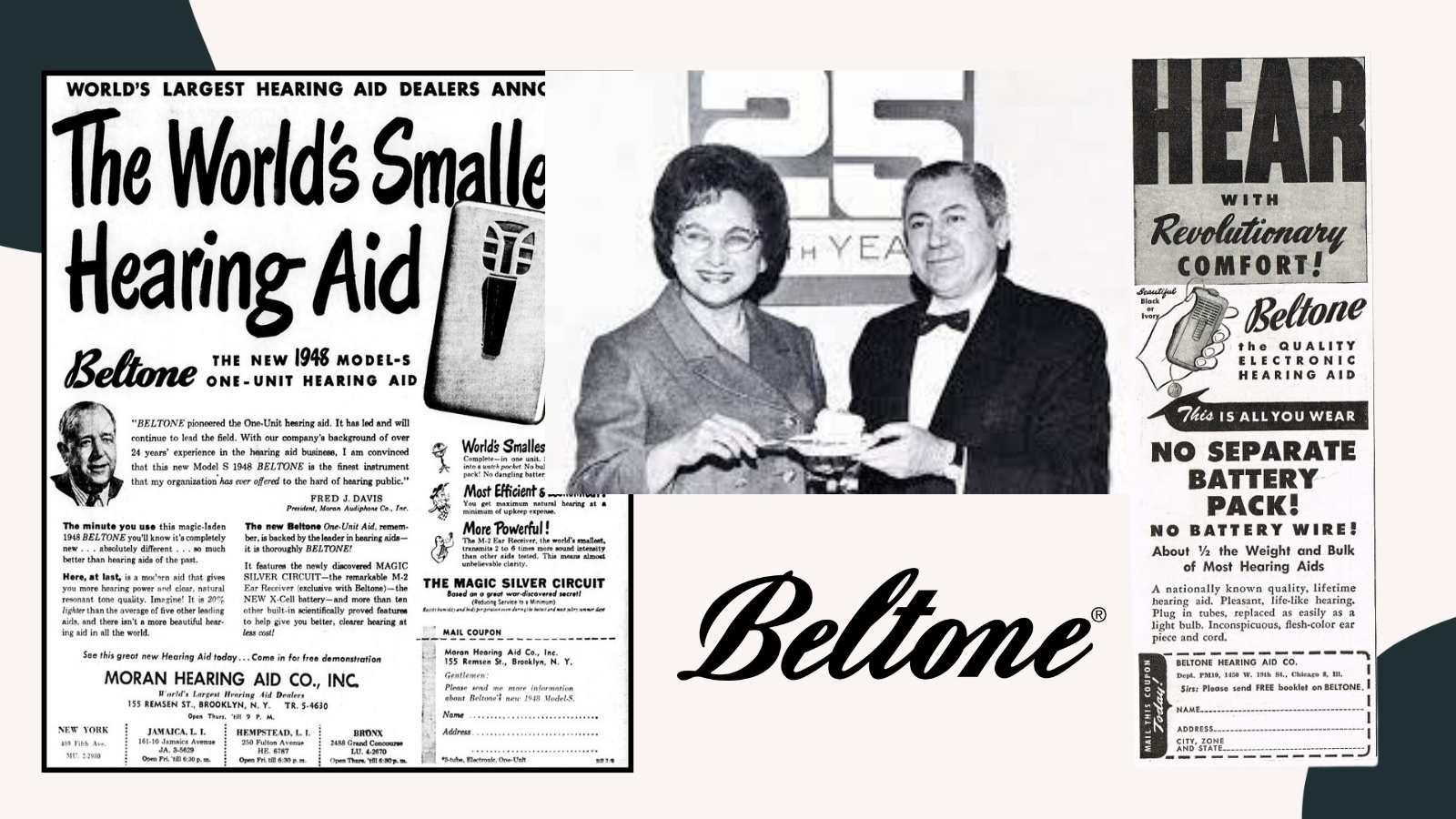
The Beltone story began in the 1930s when the husband and wife team Sam and Faye Posen wanted to help a friend struggling to hear. They felt they could offer better technology with individualized hearing capabilities. In 1940 the company officially opened a store in downtown Chicago.
Over the next 60 years, Beltone built a nationwide retail footprint and designed leading hearing aids.
In the 80s, Beltone partnered with actress Jane Wyatt to promote their growing brand in this throwback TV spot.
In 2000 GN purchased Beltone and another American company called ReSound (now the 4th largest maker of hearing aids globally). Beltone is part of the GN Group alongside other brands such as ReSound and Jabra. Beltone hearing aids are manufactured and designed in the same place as all GN Hearing products and share technology with ReSound.
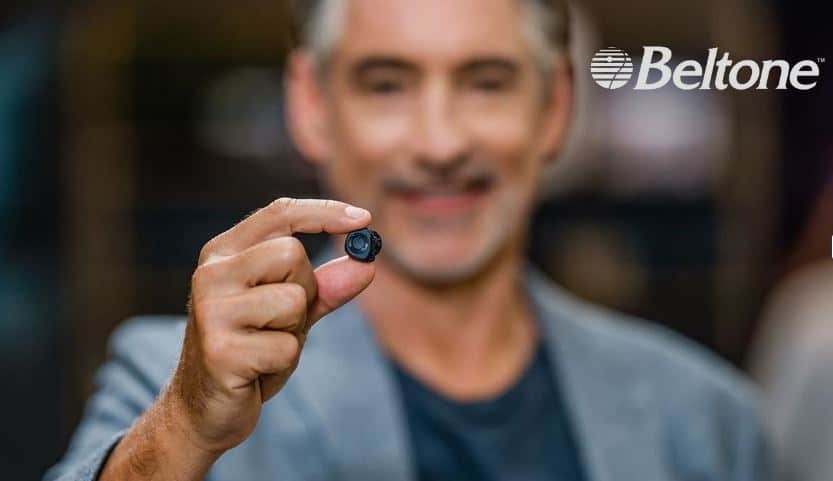
Today Beltone does not manufacture hearing aids themselves. Instead, they work with GN and ReSound to white label technology under the Beltone name.
The Beltone retail experience is much like any other hearing center, offering hearing screenings, diagnostics, hearing aid programming, and maintenance.
Most Beltone stores are independently owned, but Beltone provides quality control, education, and onboarding support for patients. Beltone recently rolled out their "Great Start" program to help first-time hearing aid wearers get used to their new devices.
2. Beltone Hearing Aids
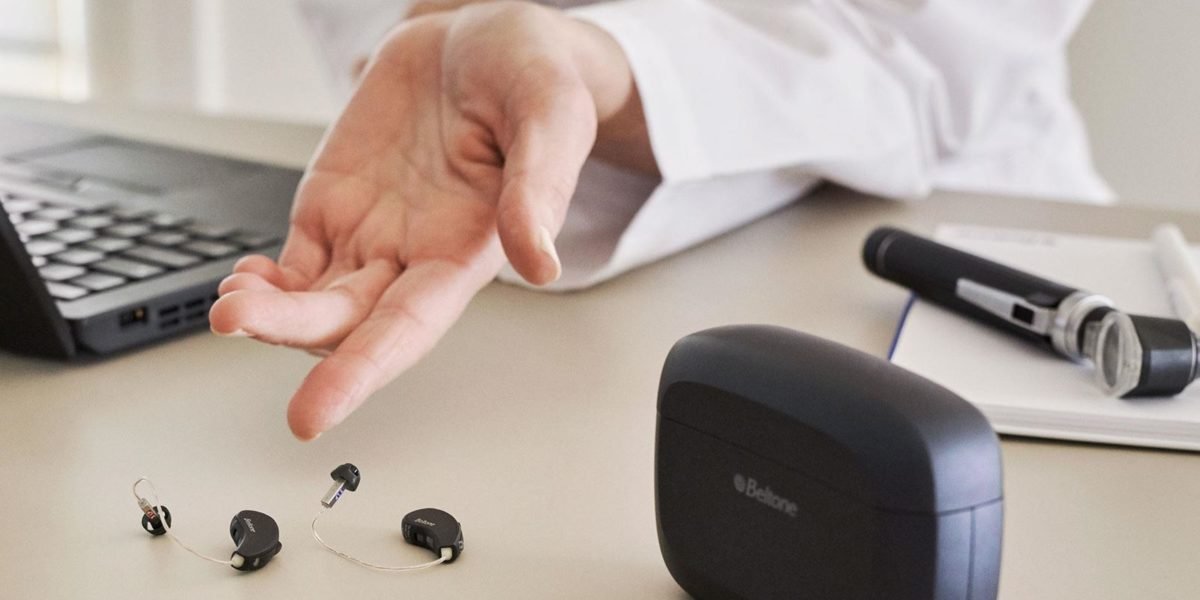
Beltone hearing aids are manufactured by ReSound and are updated regularly to match ReSound's latest innovations.
- Beltone offers custom-mold hearing aids (can be rechargeable or invisible)
- Receiver-in-canal hearing aids (most popular)
- Behind-the-ear hearing aids (best for profound loss)
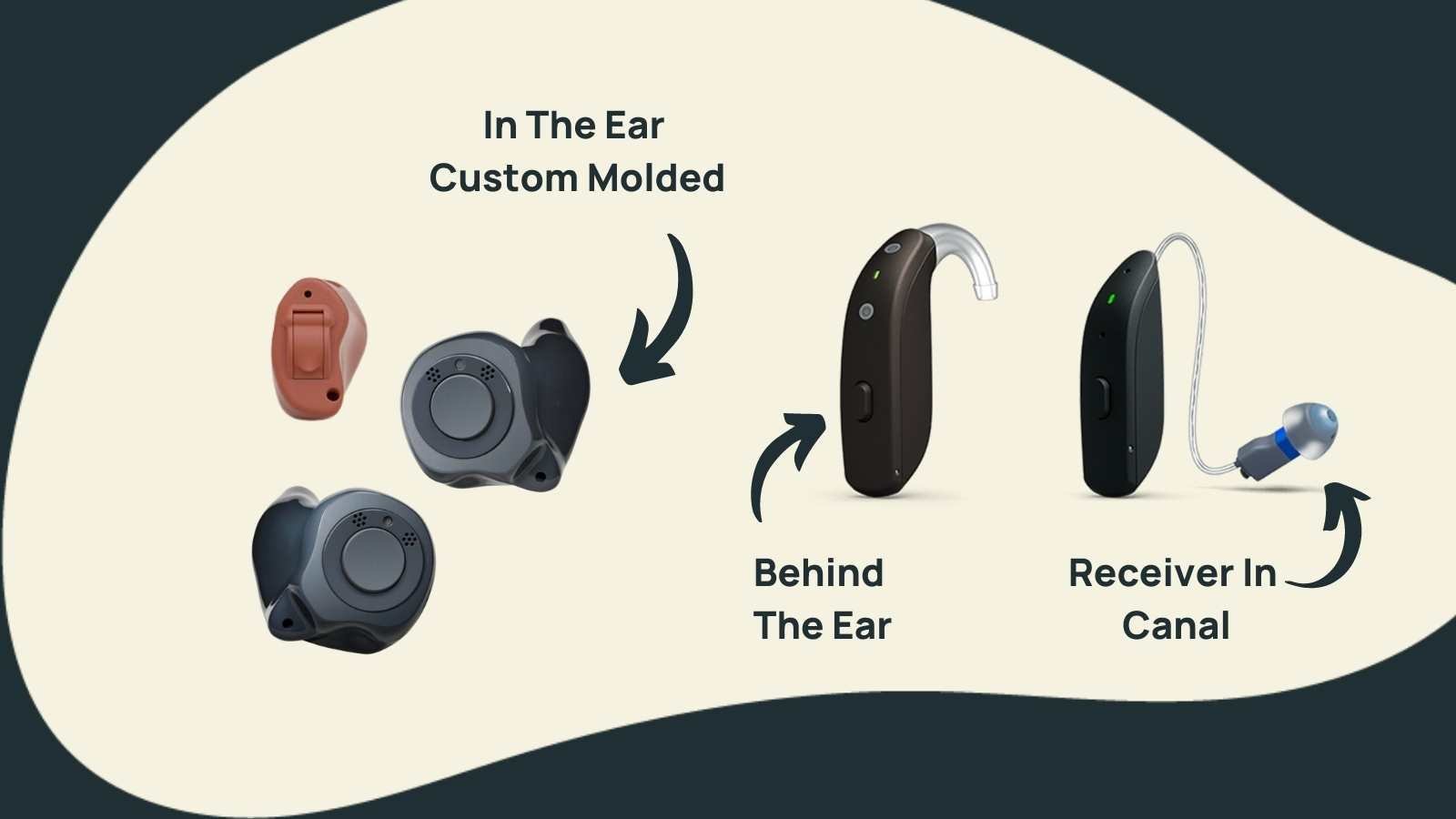
Once you select a style of hearing aid Beltone will work with you to determine a technology level.
Beltone has their own naming conventions for their technology:
- Achieve - Most expensive and best at handling background noise (only available in styles that sit behind the ear)
- Imagine - Mid-price with slightly less background noise reduction (available in all styles)
- Rely - A budget option with robust features but less background noise reduction
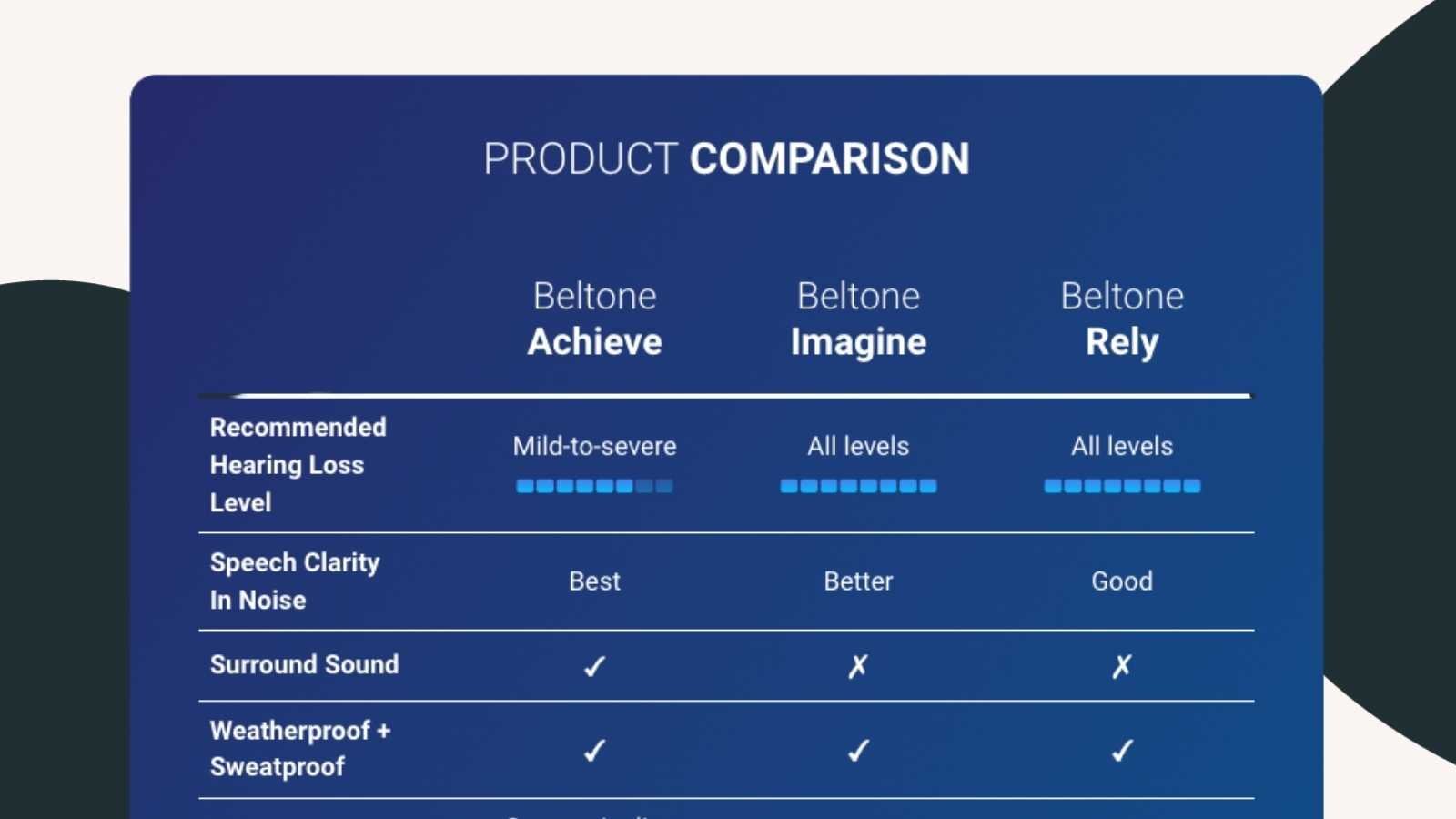
If you want to learn more about the Beltone range of products, you can read up on ReSound OMNIA and Customs by ReSound. These hearing aids are virtually identical to Beltone's devices under different names.
3. Beltone Fitting and Care

Start with the location finder on the Beltone website. Chances are that they will have a location in your area.
You can use the online form to set up an appointment or call the number at your local retailer.
Beltone offers a free hearing screening to anyone who comes to their clinic. After your screening, a professional will walk you through your options and learn more about your goals.
You can try hearing aids in the office to see which products fit your needs.
If you purchase hearing aids at Beltone, you will receive free lifetime cleanings and annual hearing exams. Beltone excels in service, and emphasizes follow-up care so that you have support when and where you need it.
You can visit any of the nationwide Beltone locations for service and cleanings, which is especially important to those who travel for part of the year.
4. Beltone Prices
You'll notice that there are no prices on Beltone's website. I contacted Beltone's corporate office to see what information they could provide for this review. Unfortunately, I don't have a simple answer.
Beltone shared that prices vary by technology level and range from $799 for a pair of Jabra Enhance Plus to a few thousand dollars for a pair of premium hearing aids.
I did some further digging online, and most reviews report hearing aids at around $4,000 - $6,000 for a pair. It appears that Beltone hearing aids are near the average cost of $4,500 per pair.
5. Final Thoughts
If you are looking for a trusted name in hearing healthcare with a national footprint for service, Beltone is hard to beat. Beltone hearing aids aren’t the cheapest option on the market but their strong partnership with ReSound means that the technology is among the best available.
Beltone maintains one of the top customer satisfaction rates in the industry and regularly wins awards for excellence in customer care.
If you would rather purchase online you might also consider Jabra Enhance Select. Jabra is also owned by GN and offers lower prices through Telehealth care.

